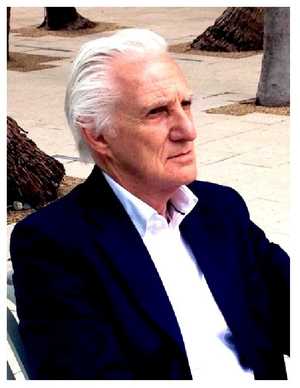Today, we are happy to bring you our conversation with Peter Radford, author of They Run With Surprising Swiftness: The Women Athletes of Early Modern Britain.
What inspired you to write this book?
Serendipity. While researching my Captain Barclay biography many years ago, I read the contemporary newspapers and journals to try to understand how sporting events were reported at the end of the 18th and beginning of the 19th century – and unexpectedly came across reports of women’s races. They intrigued me and so I made a note of them. When I got to about 60 such events I gathered them together and reported them to an international Sports History Conference in Berlin. Afterwards, I continued to hunt for more, and as the numbers of such events grew, I created a data-base of all known events from the 17th century to about 1825, and in this book I report on over 500!
What did you learn and what are you hoping readers will learn from your book?
For 350 years at least, women of all ages have taken part in sport and demonstrated their skill, strength, and endurance, often in front of large crowds. Public opinion was often against them, however, so, their participation demonstrated their determination, resilience and self confidence. Almost all we know of these early modern women athletes we know through the eyes and the reports of men, which is why we know so little about them, and why the modern sporting world is almost completely unaware of their achievements. Modern women athletes should know that they were never newcomers to sport, and be inspired by those that went before who also deserve to take their place in women’s long and rich sporting history.
What surprised you the most in the process of writing your book?
The diversity and range of women’s involvement in sport in early modern times is very impressive, but it was, perhaps, the sheer numbers who took part that was the biggest surprise. There are records of many hundreds of women cricketers, and thousands of competitive runners who ran in almost every corner of Britain. Competitive running was not a rural sport, nor an urban one, nor was it a sport for the young or the old, or the married or the single. It was a sport for everyone, everywhere.
What’s your favorite anecdote from your book?
In September 1730 a “best of three” contest was advertised between six runners – one of them a black girl. They were to run from Buckingham Gate (just to the left of Buckingham Palace as you look at it) to “the New Bridge at Chelsea,” which is no longer there, but which was about 4¼ miles away - and back again, i.e. 8½ miles! Followed by an hour’s rest or massage. This was then followed by the second race, and if the same runner won again she would be the overall winner having won two of the three races (i.e. the best of three). If another runner won the second race, a third race would have been required between the two winners. Thus, all six runners knew when they began that they faced the possibility of three 8½ mile races, an hour apart. Every runner knows how tough three 8½ mile runs would be with an hour’s rest in between – but these weren’t runs they were races! The prospect of three 8½ mile races with an hour between would challenge any athlete of any age at any time in history. Although this is the most extreme example of the “best of three” system of racing – it is an illustration of just how tough the world of competitive sport could be for women and girls in the 18th-century.
What’s next?
Who knows? Sometimes the fun is surprising oneself!





